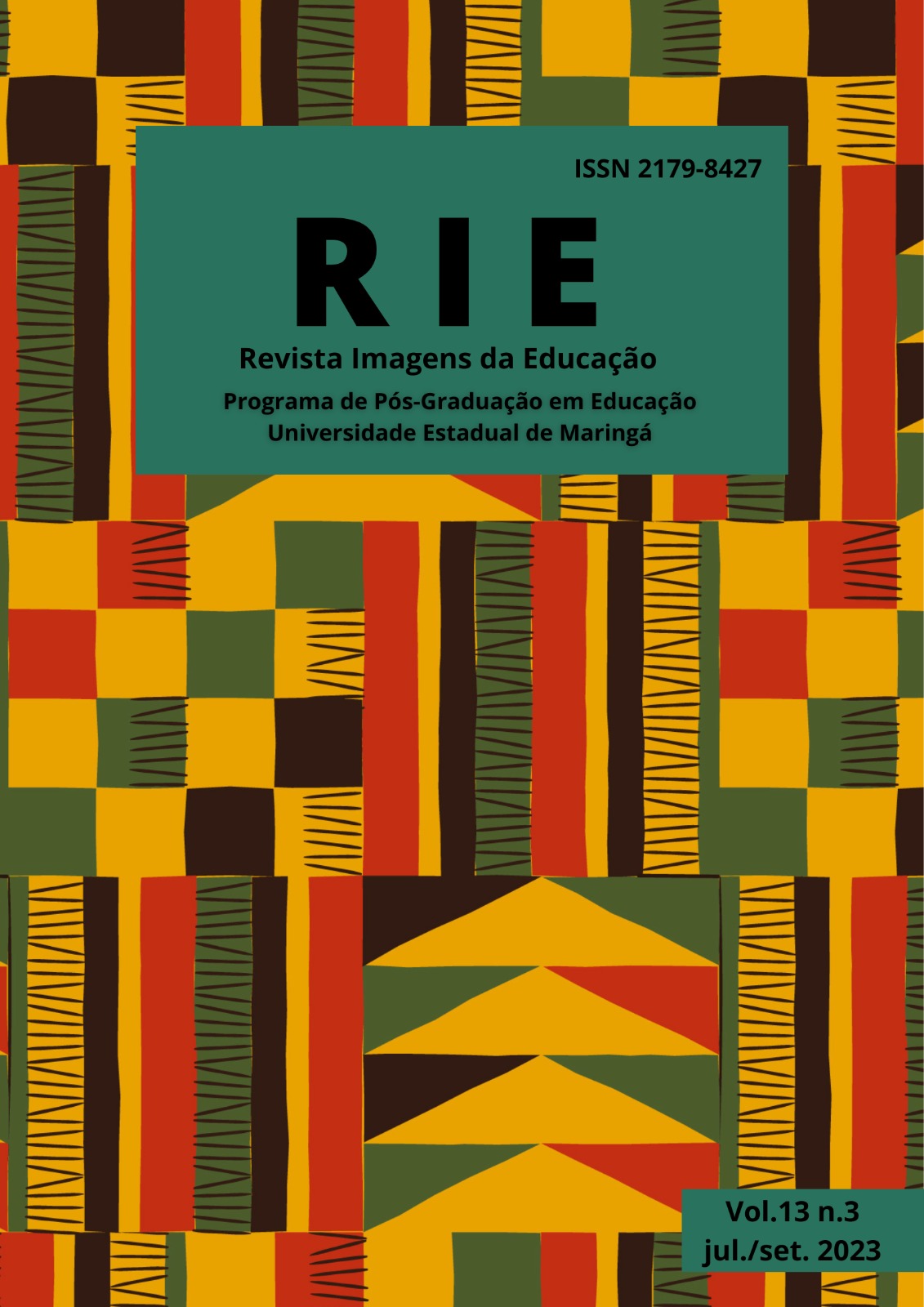FROM THE CURRICULUM AS A COUNTERREDUNDANT SUBJECTIVATION MACHINE
Abstract
This article problematizes what constitutes a curriculum as a counter-redundant subjectivation machine. Starting from the situation of the Covid-19 pandemic, it investigates how educational experiences in the scope of remote teaching were confronted by a double perspective: by the constant harassment toward the educational pursuit, often reinforcing the neoliberal precariousness of teaching and, on the other hand, by the opportunity to sketch discontinuities on the redundant curriculum. In order to understand the redundant curriculum, the text analyzes: a) the dominant conception around the foundation of modern subject and its subjectivities as well as how to oppose to them; b) based on Althusser's thought, the place of ideology as the production of territories of redundant subjectivities; c) the possibility of a counter-redundant subjectivation machine, especially based on Guattari's thought. In the end, the article argues that post-pandemic education must persist in the inventiveness of asserting itself as a counter-redundant subjectivation machine, according to the arguments outlined in the article.
Downloads
References
Berardi, F. (2020). Asfixia. Capitalismo Financeiro e a insurreição da linguagem. São Paulo: UBU.
Bourdieu, P., & Passeron, J.-C. (1975). A reprodução: elementos para uma teoria do sistema de ensino. Rio de Janeiro: Francisco Alves.
Carvalho, A. F., & Gallo, S. (2022). Do sedentarismo ao nomadismo: intervenções do pensamento das diferenças para a educação. Belo Horizonte: Fino Traço.
Carvalho, A. F., & Gallo, S. (2022). Governamentalidade neoliberal em tempos sindêmicos: entre Foucault e Veiga-Neto. In C. S. Traversini et alli (Org). Alfredo Veiga-Neto: modos de ser e pensar junto com Michel Foucault (p. 21-33). São Carlos: Pedro & João.
Deleuze, G. (2016). Resposta a uma questão sobre o sujeito. Dois regimes de loucos – textos e entrevistas (1975-1995) (p. 370-372). São Paulo: Editora 34.
Deleuze, G. (1991). Foucault. 2ª ed. São Paulo: Brasiliense.
Deleuze, G., & Guattari, F. (1980). Mille Plateaux. Paris: Les Éditions de Minuit.
Deleuze, G., & Guattari, F. (1992). O que é a Filosofia? Rio de Janeiro: Ed. 34.
Gallo, S. (2019). Subjetividade, Ideologia e Educação. 2ª ed. Campinas: Alínea.
Guattari, F. (1985). Revolução Molecular: pulsações políticas do desejo. 2ª ed. São Paulo: Brasiliense.
Guattari, F. (2012). La révolution moleculaire. Paris: Les Prairies Ordinaires.
Guattari, F., & Rolnik, S. (1986). Micropolítica – cartografias do desejo. Petrópolis: Vozes.
Filordi, A. (2020a). Manipulação estatística e ocultação de dados na pandemia: o caso Brasil. Jornal GGN, 11 de abril. Disponível em: https://jornalggn.com.br/artigos/manipulacao-estatistica-e-ocultacao-de-dados-na-pandemia-o-caso-brasil-por-alexandre-filordi/. Acesso em 25 de out. 2022
Filordi, A. (2020b). Por que a educação deveria parar na quarentena. Jornal GGN, 05 de maio. Disponível em: https://jornalggn.com.br/artigos/por-que-a-educacao-deveria-parar-na-quarentena-por-alexandre-filordi/. Acesso em 25 de out. 2022.
Filordi, A. (2021a). A nação do dia D e da hora H: entre demagogias e hipocrisias. Jornal GGN, 12 de jan. Disponível em: https://jornalggn.com.br/politica/a-nacao-do-dia-d-e-da-hora-h-entre-demagogias-e-hipocrisias-por-alexandre-filordi/. Acesso em 25 de out. 2022
Filordi, A. (2021b). É isto uma aula? Boletim da ANPOF, 13 de abril. Disponível em: https://anpof.org/comunicacoes/coluna-anpof/e-isto-uma-aula. Acesso em 25 de out. 2022.
Foucault, M. (2001). Ditos e Escritos III – estética: literatura e pintura, música e cinema. Rio de Janeiro: Forense Universitária.
Foucault, M. (2004). Ditos e Escritos V – ética, sexualidade, política. Rio de Janeiro: Forense Universitária.
O’Neil, C. (2020). Algoritmos de destruição em massa. Como o big data aumenta a desigualdade e ameaça a democracia. Santo André: Rua do Sabão.
Saldaña, P., Palhares, I., & Cardoso, W. (2022). Pandemia reduz aprendizado em toda a educação básica, diz avaliação. Folha de São Paulo, Caderno Cotidiano, 17 de set., B2, p. 28.
Copyright (c) 2023 Imagens da Educação

This work is licensed under a Creative Commons Attribution-NonCommercial-NoDerivatives 4.0 International License.
DECLARATION OF ORIGINALITY AND CESSATION OF COPYRIGHT
I Declare that current article is original and has not been submitted for publication, in part or in whole, to any other national or international journal. I also declare that once published in the Imagens da Educação, a publication of the IES (UEM, UEL, UFSM, Univali, Unioeste and UEPG), it will not be submitted by me or by any co-author to any other journal. In my name and in the name of co-authors, I shall cede the copyright of the above mentioned article to the Universidade Estadual de Maringá and I declare that I know that the non-observance of this norm may make me liable for the penalties contemplated in the Law for the Protection of Authors' Rights (Act 9609 of the 19th February 1998).















1.png)

